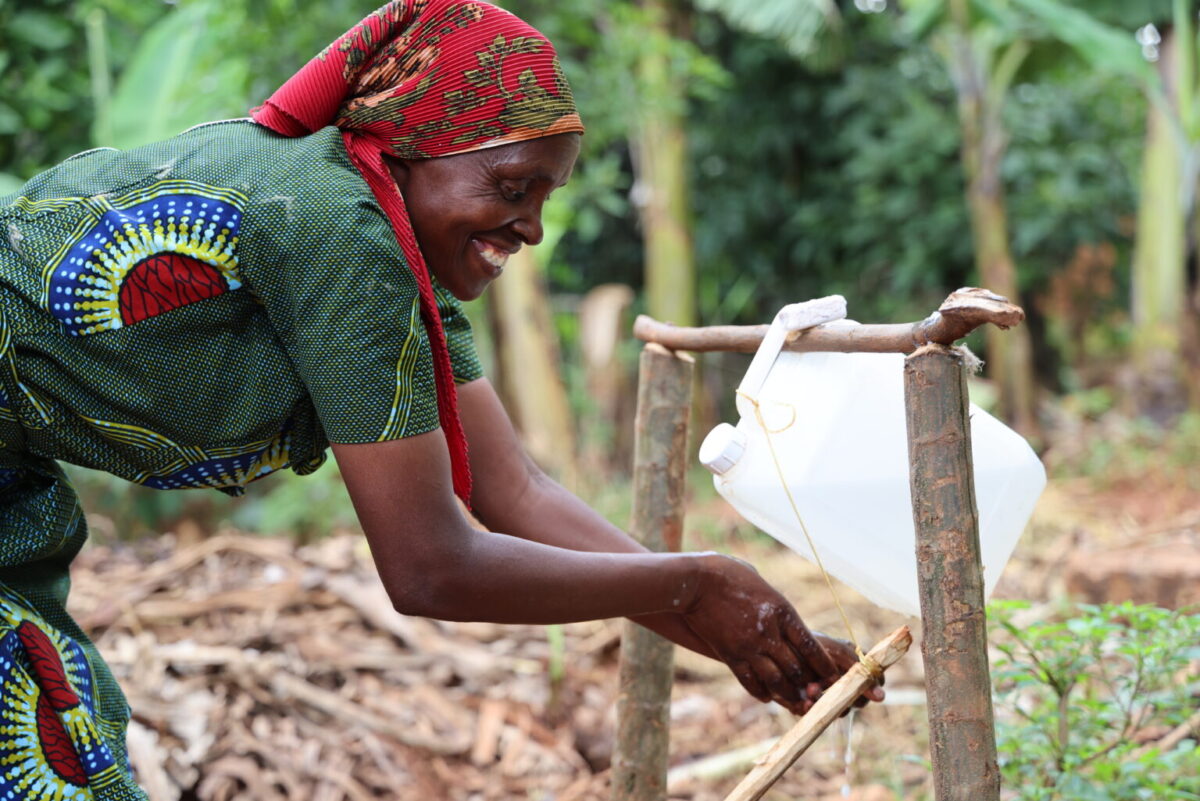A person’s access to water and sanitation is connected to their health and well-being, education and economic opportunities, and ability to withstand the impacts of climate change and other stressors. It’s the foundation for our ability to thrive.
Emilienne Ahobantegeye began noticing a pattern with her children. "I used to see multiple cases of disease and frequently visited the local health center to treat my children. I attribute this to a lack of hygiene," she says. That realization motivated Emilienne to make a change.

With training from Water For People’s Isoko y’Ubuzima project, she learned about safe sanitation and hygiene practices. She borrowed funds from her local savings group to build an improved latrine and install a handwashing station at home. This investment’s positive impact on her family’s health and quality of life motivated Emilienne. "Our health changed after I constructed an improved latrine. I’ve been going around the community to ensure more people have improved latrines," she shares.
"Our health changed after I constructed an improved latrine. I’ve been going around the community to ensure more people have improved latrines,"
Now, Emilienne is a health and hygiene champion in her community, speaking during community gatherings and conducting home visits. Her advocacy is already making a difference: She’s led outreach to 30 neighbors, and eight households have built improved latrines. Emilienne is improving her village’s health, dignity, and well-being—one household latrine at a time.
We can’t have adequate health without safe water. A family drinking from a contaminated water source can lead to serious illness from diseases like cholera. This means parents may be unable to work, and children may miss school. Time and money are spent visiting a healthcare center. But what if that medical center lacks reliable clean water, safely managed sanitation, and sufficient handwashing? Both patients and medical providers are at risk of spreading disease.
Water For People’s work includes protecting water sources, safely managing human waste, reaching hospitals and clinics with reliable water and sanitation access, and providing hygiene training in schools and communities, because no one should die from a preventable disease.
